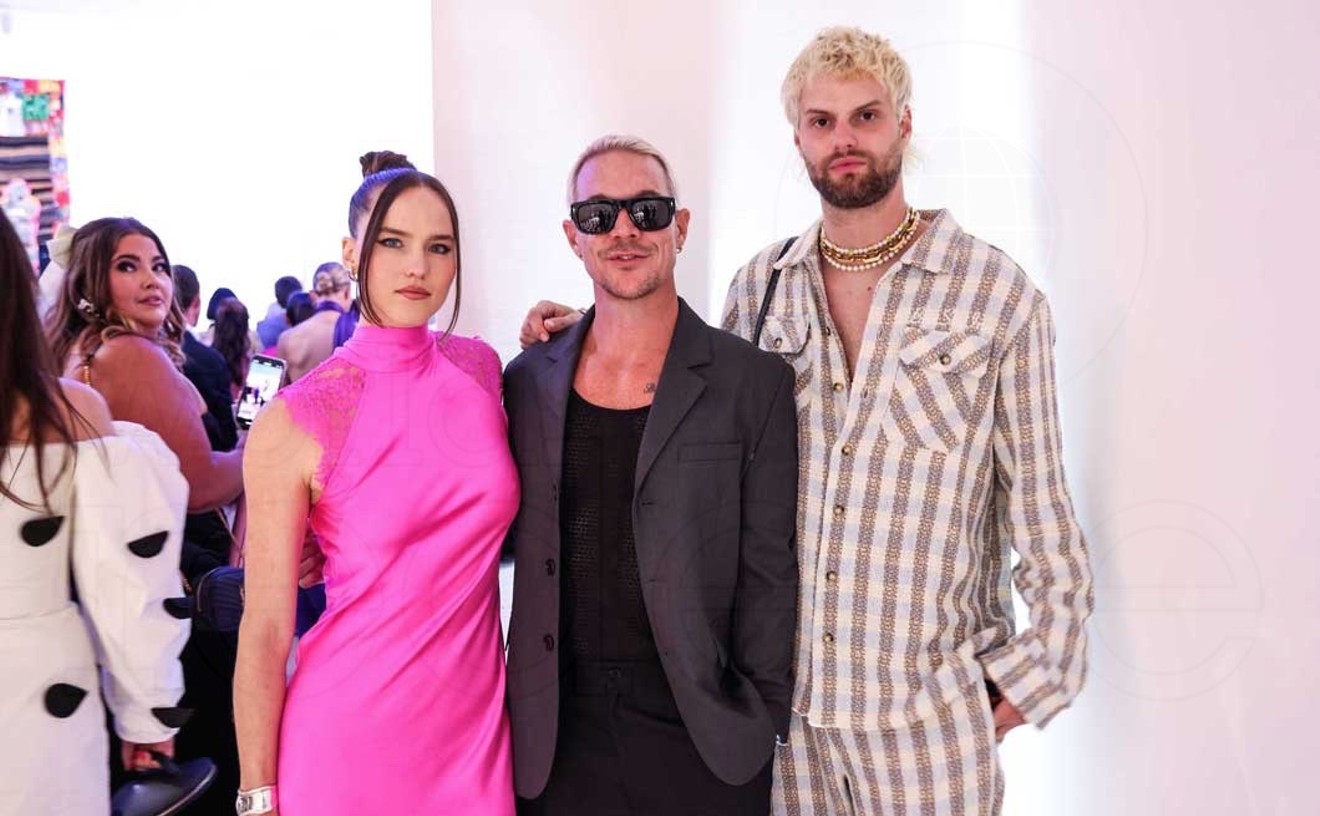It may seem like orchids are everywhere in Miami. The tropical treasures jump out at us from roadside stands; peer down delicately from treetops; add a colorful hue to many a Florida room. But as it turns out, there used to be a whole hell of a lot more orchids around here than there are now. Like, millions more.
Most of the orchids you see around town aren't native species -- the originals were decimated by people picking and exporting them back in the day. But Fairchild Tropical Botanic Garden aims to change all that with their Million Orchid Project. They'll be propagating a million new plants in their shiny new lab, then working with local schools and municipalities to cover the city with these lush blooms. In honor of this ambitious endeavor, here are a few things you probably didn't know about the beautiful blossoms.
5. Orchids make excellent city dwellers.
Fairchild Director Dr. Carl Lewis originally got the idea for the Million Orchid Project from a trip to Singapore, where he saw them doing something similar. Turns out, the orchids are thriving, right in the middle of the metropolis.
"What caught my attention is that they were not just planting those orchids in forest environments, but putting them in the middle of the city among the skyscrapers and some of the busiest streets of Singapore. They're all orchids that grow on trees, so they actually coexist very well in an urban environment as long as there are street trees," Lewis says.
4. There are about 50 orchid varieties native to South Florida. But they're not necessarily the ones you see most often.
The ones you buy on the roadside, for instance, are mass produced elsewhere, Lewis says. Most of the area's original natives were decimated decades and decades ago.
"We are working with an initial group of three species that would have been fairly common around here 150 years ago," he says. "As the project progresses we will probably add more."
3. In nature, only about one in a million orchid seeds makes it.
"They'll only develop if they land in exactly the right spot, and they have to live in partnership with a fungus," Lewis explains.
"Orchid seeds are so tiny that they don't carry any stored nutrients." Hence the fungus. Luckily, the odds are a lot better in the lab, where a chemical medium provides all the nutrients they need.
2. To stay in the trees, they'll get glued on.
You heard right -- glued. Eventually, their roots will take hold and they won't need any help, but initially, it's all glue baby.
1. Growing orchids in a lab takes forever. Well, relatively speaking.
"It becomes a labor intensive process," Lewis says. Highly trained volunteers man the labs at Fairchild, and the orchids start from seedlings, are grown in bottles, and require multiple transplants plus time in the greenhouse. They won't be tree ready till they're 24 months. Toddlers.
"The project is a lot of fun for us, because of all the orchids, but especially because of all the people involved," Lewis adds. From volunteers to schoolkids to city officials, this is a major community effort.
Lewis thinks a million orchids should mean critical mass.
"If we get a million orchids out there, it'll be so many we hope people won't feel any incentive to steal them. It should be enough that we think they'll start to produce seeds and eventually reproduce on their own."
Hear that folks? No stealing of the orchids. Stick with the roadside stands, instead. In the meantime, you can check out Fairchild's website for more info on the project.
Follow Cultist on Facebook and Twitter @CultistMiami.










